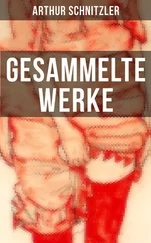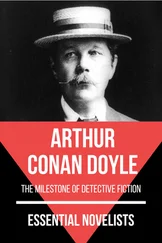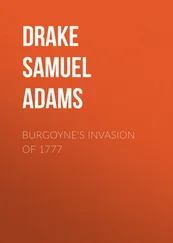Arthur Burgoyne - Homestead
Здесь есть возможность читать онлайн «Arthur Burgoyne - Homestead» — ознакомительный отрывок электронной книги совершенно бесплатно, а после прочтения отрывка купить полную версию. В некоторых случаях можно слушать аудио, скачать через торрент в формате fb2 и присутствует краткое содержание. Жанр: foreign_antique, foreign_prose, на английском языке. Описание произведения, (предисловие) а так же отзывы посетителей доступны на портале библиотеки ЛибКат.
- Название:Homestead
- Автор:
- Жанр:
- Год:неизвестен
- ISBN:нет данных
- Рейтинг книги:5 / 5. Голосов: 1
-
Избранное:Добавить в избранное
- Отзывы:
-
Ваша оценка:
- 100
- 1
- 2
- 3
- 4
- 5
Homestead: краткое содержание, описание и аннотация
Предлагаем к чтению аннотацию, описание, краткое содержание или предисловие (зависит от того, что написал сам автор книги «Homestead»). Если вы не нашли необходимую информацию о книге — напишите в комментариях, мы постараемся отыскать её.
Homestead — читать онлайн ознакомительный отрывок
Ниже представлен текст книги, разбитый по страницам. Система сохранения места последней прочитанной страницы, позволяет с удобством читать онлайн бесплатно книгу «Homestead», без необходимости каждый раз заново искать на чём Вы остановились. Поставьте закладку, и сможете в любой момент перейти на страницу, на которой закончили чтение.
Интервал:
Закладка:
Mr. Lovejoy's statement, although given out in an informal way, was generally accepted as meaning that the ax was forthwith to be let fall upon the neck of organized labor at Homestead, and that no human power could stay the hand of the executioner.
Still all was quiet at Homestead. June 25 was Saturday and pay-day, but the day was marked by less activity and bustle than usual. The stores were not crowded, and little money was spent. In the face of trouble, the end of which it was impossible to foresee, men carefully put away the contents of their pay envelopes. The wolf might come to the door before long and resources had to be husbanded. Few cared for the little Saturday jollifications common at other times. Wherever a group of mill men came together, the one theme of discussion was the ultimatum of the firm, the prospect of a wholesale discharge of union men on July 1 and the meaning of the warlike equipment of the mill property.
A new and significant name was devised for the Carnegie enclosure, with its ramparts, watch towers, search-lights and other suggestions of war, and flew from mouth to mouth with the rapidity of lightning.
"Fort Frick."
An ill-omened name it was, bristling with offensive associations; but its propriety as a descriptive epithet could not be questioned.
Who was to occupy the "fort?" Whose guns were to be used through those loopholes?
"Pinkerton detectives," said some, and the rumor that an army of "Pinkertons" had been hired and might already be on its way to garrison the works and shed the blood of the men of Homestead found ready credence and deepened the feeling of resentment abroad in the town. Many were disposed to believe that Pinkerton scouts had arrived and were making things ready for the coming of the main guard.
On Tuesday, June 28, the company ordered the armor-plate mill and the open-hearth department shut down, throwing 800 men out of employment.
This was the beginning of the lock-out, for a lock-out it was, and not a strike, as has been very generally represented.
A strike occurs when dissatisfied workingmen cease work of their own accord and refuse to return until the cause of dissatisfaction is removed.
A lock-out originates with the employing individual or corporation, and consists in the refusal to let the employees work until they come to terms with the employer.
As Mr. Frick took the initiative, the trouble at Homestead was distinctively a lock-out, although, if Mr. Frick had chosen, he could have permitted it to take the form of a strike.
It made little difference in the end which of the contestants took the first aggressive step. Once the Frick ultimatum was promulgated, a struggle was inevitable, and if the firm had not thrown down the gauntlet, the men most assuredly would have forced the fighting on their own account.
The night of June 28 witnessed strange scenes in Homestead. The pent-up feelings of the men now found vent unrestrainedly. Effigies of Frick and Potter were hung on telegraph poles. Denunciations of the firm and its policy were heard on every hand. Knots of angry men gathered outside the board fence that hedged the mill enclosure, peered through the loopholes at the watchmen on duty within and talked defiantly of what would happen if the methods that triumphed over the poor, disorganized serfs in the coke regions were to be tried upon four thousand sturdy and intelligent steelworkers. If an apostle of non-unionism had ventured upon the streets of Homestead that night he would have fared badly.
The next morning, at the call of the officers of the local lodges, 3,000 steelworkers met in the opera house. The chairman of the executive committee stated to the meeting that, at a conference of committeemen representing the eight lodges, held on the preceding evening, it had been decided to submit the question of shutting down the mechanical department of the mills to the steelworkers en masse , irrespective of affiliation with the lodges, and that the decision thus arrived at should be binding on all. This report was approved and a motion was made that a committee be appointed to request the mechanics and day laborers to quit work at once. A workman asked if the watchmen were to be included, and another answered: "Three years ago the watchmen wanted to come out and now they must come."
The motion passed amid tremendous cheering.
The chairman of the executive committee, resuming his address, refuted the report spread through the newspapers that six or seven hundred mechanics and day laborers had signed a scale arranged by the firm. A committee of this class of workmen, he said, had waited on General Manager Potter and had been thrust aside pending the settlement of the tonnage men's wages. After this, the mechanics and laborers had resolved to cast their lot with the Amalgamated Association, and had signified their decision to the lodges.
William Roberts, chairman of the conference committee, which had waited on Mr. Frick by authority of the Amalgamated convention, took the platform and detailed the action of his committee. Mr. Roberts told of the committee's offer to concede a basis of $24 and of the firm's demand that the scale terminate on the last day of the year. "We wouldn't agree to this," he said, "and I now ask you had we any right to do so?"
"No! No! No!" shouted 3,000 voices.
The speaker described how, when the committee presented as its last and only demands that a $24 basis be adopted and that the scale expire on the last day of June, Mr. Frick jumped to his feet and exclaimed hotly: "Gentlemen, that ends all conferences between you and this firm." "So you see," Mr. Roberts went on to say, "This is not a strike. The firm put a snag in our road… We filled our contract. Now the firm has laid the entire mill off one day ahead of time. Has it lived up to its contract?"
Again 3,000 voices shouted "No," and the action of the wage conference committee was ratified without a dissenting voice.
A resolution was offered providing that, in case any man left Homestead during the coming trouble without permission from the lodge officials, the men should refuse to work with him on his return. The chairman asked all who were in favor of the resolution to rise. Instantly every man in the hall sprang to his feet and the resolution was adopted with three cheers and a tiger, followed with hisses for H. C. Frick.
A motion to appoint a press committee, consisting of one member from each of the eight lodges, was carried after a discussion as to unreliable reports. The membership of this committee was kept secret for the time being.
A whirlwind of excitement was roused when a speaker told of a report that 200 non-union workmen were coming to Homestead disguised in the blue uniform of Pinkerton detectives. "Watch the depots," was the unanimous cry that followed this alarmist statement.
When, after a session of two hours, the meeting adjourned, there remained not the least doubt as to the unity of feeling among all classes of workers in the town. Every man was ready to enter upon relentless strife, and if there was a coward or malingerer in any quarter, he wisely held his peace.
After the general meeting, the eight lodges held a secret session, at which an advisory committee was appointed, with full power to direct the workmen's campaign. This body, which played the most important part in the tragic drama soon afterwards enacted, was composed of the following members: David H. Shannon, John McLuckie, David Lynch, Thomas J. Crawford, Hugh O'Donnell, Harry Bayne, Elmer E. Ball, Isaac Byers, Henry Bayard, T. W. Brown, George W. Champene, Isaac Critchlow, Miller Colgan, John Coyle, Jack Clifford, Dennis M. Cush, William McConeghy, Michael Cummings, William Combs, John Durkes, Patrick Fagan, W. S. Gaches, Nathan Harris, Reid Kennedy, John Miller, O. O. Searight, John Murray, M. H. Thompson, Martin Murray, Hugh Ross, William T. Roberts, George Rylands and George W. Sarver.
Читать дальшеИнтервал:
Закладка:
Похожие книги на «Homestead»
Представляем Вашему вниманию похожие книги на «Homestead» списком для выбора. Мы отобрали схожую по названию и смыслу литературу в надежде предоставить читателям больше вариантов отыскать новые, интересные, ещё непрочитанные произведения.
Обсуждение, отзывы о книге «Homestead» и просто собственные мнения читателей. Оставьте ваши комментарии, напишите, что Вы думаете о произведении, его смысле или главных героях. Укажите что конкретно понравилось, а что нет, и почему Вы так считаете.












